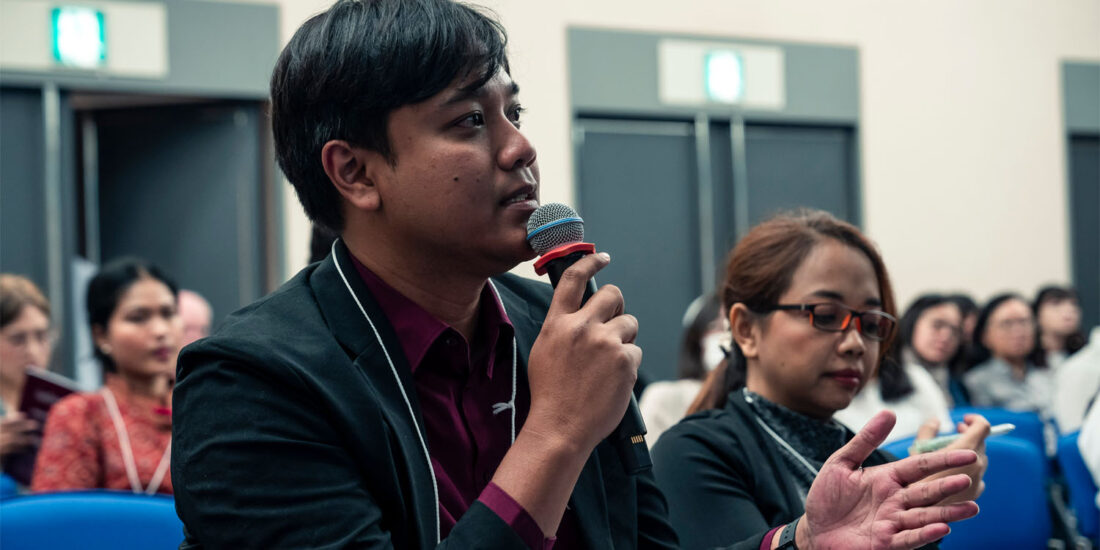IAFOR will host a Forum session on ‘Global Citizenship and Responsible Tourism’ at The Barcelona Conferences on Education (BCE2024) and Arts, Media, and Culture (BAMC2024). Join us on Wednesday, November 13, 2024, in the 7F Auditorium at TBS Education Barcelona, where delegates from all over the world will share insights and engage in open discussions from diverse perspectives and disciplines.
‘The summer that tourism fell apart’, as one of the most recent articles published by the BBC (26 September 2024) dramatically proclaimed, alludes to one of the most pressing issues countries are facing today due to globalisation: mass tourism. Globalisation and the liberalisation of the market have allowed for an easier transnational movement of people, goods, services, and money. International travel and tourism are two of the sectors that have benefited the most from globalisation. Popular European travel destinations like Spain, France, and Italy are reporting a record-high number of international visitors for 2024: in Spain alone, about 95 million international tourists are expected to visit the country, a 10% increase compared to last year (El País, August 21 2024). Winter destinations like Rovaniemi in northern Finland equally feel the effects of tourism influx during the winter season. Mass tourism can also be observed in Japan, where a record 35 million tourists are expected to visit the country this year (Kyodo News, July 19 2024). This spells great revenues for affected countries’ governments and hospitality sectors, as tourism contributes a significant amount to national GDPs.
However, an increase in revenue does not guarantee equal distribution of profits among members of society. In fact, mass tourism favours the hospitality sector and travel agents, who specifically cater to foreign visitors, resulting in an unequal distribution of profits where local communities seldom benefit. While the growth rates of tourism look excellent on paper, especially when compared to pre-pandemic rates, the local population suffers under the increasing number of ‘intruders’. One of the most urgent issues is the inability of locals to afford housing in city centres, especially due to short-term rentals which are popular with tourists, such as Airbnb. Rental apartment prices become more expensive, causing a housing crisis. Permanent local residents are being displaced and see their right to housing being violated. Spain’s central bank has reported that ‘nearly half of families renting at market prices are at risk of poverty or social exclusion’ (Money Tourism, October 29 2024).
Social well-being is also severely diminished by mass tourism. It is argued that tourist hotspots attract drugs, petty crime, and sex work. This is easily seen in places famed for their nightlife and party districts, such as Barcelona in Spain or Pattaya in Thailand. Xavier Mas de Xaxàs, a reporter for La Vanguardia, lamented that ‘a few weeks ago, the last bookshop in the seaside district of La Barceloneta closed down. It was replaced by a cannabis shop’ (The Guardian, August 19 2024). Local culture is being replaced by short-term pleasures directed at tourists, which can eventually affect the local population. Furthermore, in a society where the cost of living is constantly rising, young people are increasingly tempted to drop out of university to work in the hospitality industry for a quick buck (The Guardian, August 19 2024). This has serious implications for the development of a country’s human capital.
Emotional frustrations also affect the locals’ mental health. Overcrowded streets, frequented by tourists who display little in the way of manners or understanding of local etiquette, cause frustration and, in some cases, even anger. In Japan, for example, the depreciation of the yen has attracted an influx of foreign visitors, who are more interested in shopping rather than culture (El País, September 15 2024). Because of this, they travel to Japan unprepared for its cultural norms and social etiquette, harassing geishas in the famous Gion district of Kyoto, or blocking traffic and endangering people’s safety on the road in Fujikawaguchiko, west of Tokyo, only to take an Instagram-worthy picture of Mt. Fuji.
To combat these issues, local governments around the world have come up with different kinds of solutions that are evidently only minimally effective. The most common instant measure taken up is the imposition of overnight stay taxes for tourists and entrance fees for especially popular sightseeing places. Venice, Italy became the first city in the world to impose such entrance fees for one-day tourists (Travel News, October 28 2024). The city of Seville in Spain followed suit, imposing an entrance fee for those entering the city’s popular Plaza de España Square (BBC, 26 September 2024). The most dramatic daily tax increase is observed in Bhutan, which is now considering raising the tax to 200 USD per day, which will all be allocated towards sustainable tourism development (BBC, 26 September 2024). On the other hand, as an extreme example of limitation measures, Japan has banned tourists from entering Kyoto’s Gion district altogether and is imposing fines of 60 EUR for violators (El País, September 15 2024).
Local governments in cities like Barcelona and Amsterdam have turned to limiting the number of tourists allowed and further restricting accommodations aimed at attracting them. Protests in Barcelona, in particular, are acting out against mass tourism, where a recent activist group proposed ‘protecting areas of ecological value, reducing the number of tourist apartments, and stopping the granting of permits for new hotels’ (Money Tourism, October 29 2024). Barcelona has also announced that it would ban short-term tourist rentals altogether, including Airbnb, by 2028 (BBC, 25 October 2024). In places like Palma de Mallorca and Tenerife, restrictions have been placed on the number of cruise liners permitted to dock and the number of tourists allowed to enter natural parks (BBC, 25 October 2024). Similarly, in Amsterdam, a ban has been placed on the construction of new hotel buildings, in addition to a cap of no more than 20 million hotel overnight stays by tourists allowed per year (Euronews, April 19 2024).
Despite the implementation of measures against mass tourism infrastructure, their impact on curbing mass tourism has been minimal, resulting in local frustration and protests in many countries, especially in Europe. Seaside towns like Barcelona and Palma de Mallorca are experiencing a rise in city-wide protests against tourists themselves: discontented activists are sending the message for tourists to ‘go home’ by splashing foreign visitors with water pistols (BBC, 26 September 2024). The BiziLagunEkin (‘with neighbours’ in Basque) organisation, which is actively leading protest activities in Spain, criticised the current handling of mass tourism as an ‘oppressive economic model’ (Money Tourism, October 29 2024). In an interview with BBC, Asier Basurto, a member of BiziLagunEkin, said: ‘We have had a way of life for generations, in which people are connected to each other and those who move into the region are integrated. If we have a model whereby visitors just come for five days and then leave, then you turn the area into a lifeless theme park, with no culture, no community’ (Money Tourism, October 29 2024).
However, ‘the numbers of [tourist] arrivals themselves are not the problem, it is the way the city caters to visitors rather than residents’, wrote Xavier Mas de Xaxàs (The Guardian, August 19 2024). He is convinced that kicking tourists out is not the solution to the problem, writing further that ‘only by educating tourists and the tourist industry about the harms they are doing by treating my city as a playground – instead of a community of people who must be treated with respect – will the situation improve. And the tourists themselves will benefit too: making local friends and better memories to take back home’ (The Guardian, August 19 2024).
These negative sentiments around sustainability and quality of life compel us to reexamine the commodification of tourism within a consumerist framework. Historically, the purpose of travelling was to expand knowledge, foster multicultural understanding, and enhance international cooperation. However, capitalism has redefined this purpose, while (social) media has further exacerbated these issues. The role of travel influencers in creating hype around ‘Instagrammable’ spots, for example, leads us to question whether travel offers more than mere likes and follows.
These ongoing challenges and issues of sustainability that mass tourism has caused invite a critical discussion on the potential of responsible tourism to promote global citizenship.
Global Citizenship and Responsible Tourism
Moderators: Professor Donald E. Hall and Dr Melina Neophytou
IAFOR will host a Forum session on ‘Global Citizenship and Responsible Tourism’ at The Barcelona Conferences on Education (BCE2024) and Arts, Media, and Culture (BAMC2024) to discuss the following questions:
Place: TBS Education Barcelona, 7F Auditorium & Online
What to bring: A smartphone with a QR-reading function




